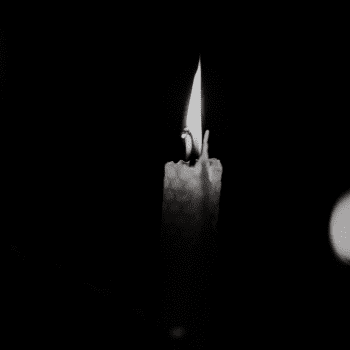I was just reminiscing with a friend about one of the greatest seasons of television ever created: the first season of HBO’s True Detective. (Don’t even get me started about season 2.)

Just about a year ago, I released a book called The Light is Winning: Why Religion Just Might Bring Us Back to Life, published by Zondervan. The tie-in is this: in the final episode of True Detective season 1, there’s a scene where a battered and bruised detective named Rust Cohle shares an epiphany with his friend. It centers on the stars in the night sky:
That scene inspired a blog post, which would (a couple years later) inspire a section in my book that would, in turn, inspire the team at Zondervan to propose the title for the book itself! What was once titled After the Apocalypse became The Light is Winning, in “light” of Rust’s moving final speech. The experience I had watching that very speech, and hearing those very words, which brought me to a powerful moment of conversion and change, was the starting point, the beginning, of what would become a published book that I am extremely proud of.
The interesting thing, though, is that the scene in True Detective doesn’t start with that part of Rust’s speech; it starts with him talking about the dark. The dark, at that point in Rust’s stream of consciousness, is not a bad place but a place that sets the stage for the light. It is there, in the dark of comatose traversing between life and death, that Rust finds the meaning of life itself:
“There was a moment, I know, when I was under in the dark, that something… whatever I’d been reduced to, not even consciousness, just a vague awareness in the dark. I could feel my definitions fading. And beneath that darkness there was another kind—it was deeper—warm, like a substance. I could feel man, I knew, I knew my daughter waited for me, there. So clear. I could feel her. I could feel … I could feel the peace of my Pop, too. It was like I was part of everything that I have ever loved, and we were all, the three of us, just fading out. And all I had to do was let go, man. And I did. I said, ‘Darkness, yeah.’ and I disappeared. But I could still feel her love there. Even more than before. Nothing. Nothing but that love. And then I woke up.”
The presence of Rust’s daughter in that space between life and death, her very real, tangible presence, was the thing that utterly shook him from his nihilism, his obsession, his atheistic despair. It was all because of the reality of love. “Nothing but that love.”
It occurs to me that this is the beginning of Rust’s final conclusion that “the light’s winning.” The reality of love woke him up to the power of the light. Likewise, the reality of love is what empowers us to keep believing in the light. No matter how dark it seems. No matter how hopeless it gets.
I had another experience right as I was writing the draft of the book, an experience that was very dark, that honestly made writing the book itself very difficult considering the theme. My oldest daughter became ill and almost died. And yet, it was in the darkness of that experience that I discovered a love for my daughter and for my family that is deeper than anything I could imagine—one that convinced me, after many hard and confusing years, that love is real, that love is strong, that love is eternal: forever.
I didn’t realize it fully then, but I’m finally starting to get it now: believing the light is winning is about experiencing and trusting in the tangible reality of love.
I could not relate more to the words of Rust Cohle: there’s nothing but that love. And if that love is real, if that love is strong, if that love is eternal, then there is always, ultimately, hope, and the light truly is winning.
Perhaps I’ll have to write a little more about that in the next book.












